Nigel John
Context-Aware Mixed Reality: A Framework for Ubiquitous Interaction
Mar 14, 2018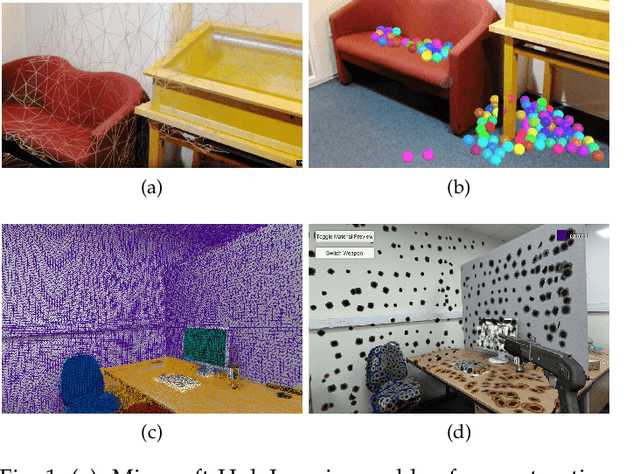

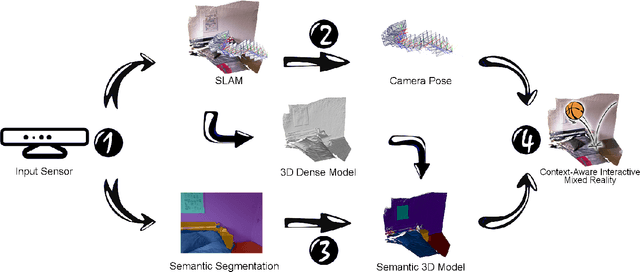
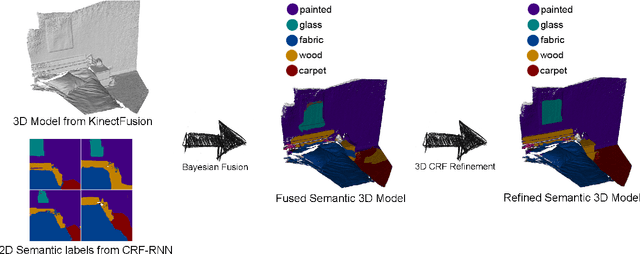
Abstract:Mixed Reality (MR) is a powerful interactive technology that yields new types of user experience. We present a semantic based interactive MR framework that exceeds the current geometry level approaches, a step change in generating high-level context-aware interactions. Our key insight is to build semantic understanding in MR that not only can greatly enhance user experience through object-specific behaviours, but also pave the way for solving complex interaction design challenges. The framework generates semantic properties of the real world environment through dense scene reconstruction and deep image understanding. We demonstrate our approach with a material-aware prototype system for generating context-aware physical interactions between the real and the virtual objects. Quantitative and qualitative evaluations are carried out and the results show that the framework delivers accurate and fast semantic information in interactive MR environment, providing effective semantic level interactions.
Self-Supervised Monocular Image Depth Learning and Confidence Estimation
Mar 14, 2018
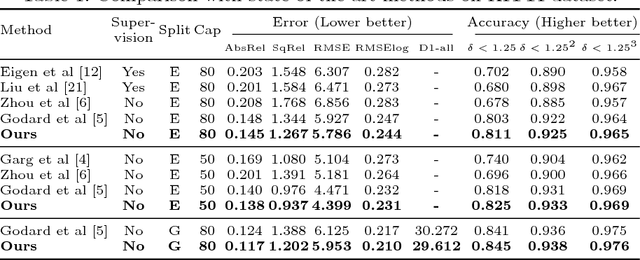
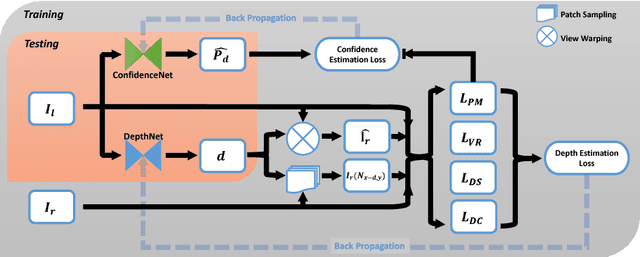

Abstract:Convolutional Neural Networks (CNNs) need large amounts of data with ground truth annotation, which is a challenging problem that has limited the development and fast deployment of CNNs for many computer vision tasks. We propose a novel framework for depth estimation from monocular images with corresponding confidence in a self-supervised manner. A fully differential patch-based cost function is proposed by using the Zero-Mean Normalized Cross Correlation (ZNCC) that takes multi-scale patches as a matching strategy. This approach greatly increases the accuracy and robustness of the depth learning. In addition, the proposed patch-based cost function can provide a 0 to 1 confidence, which is then used to supervise the training of a parallel network for confidence map learning and estimation. Evaluation on KITTI dataset shows that our method outperforms the state-of-the-art results.
Converting Instance Checking to Subsumption: A Rethink for Object Queries over Practical Ontologies
Feb 26, 2015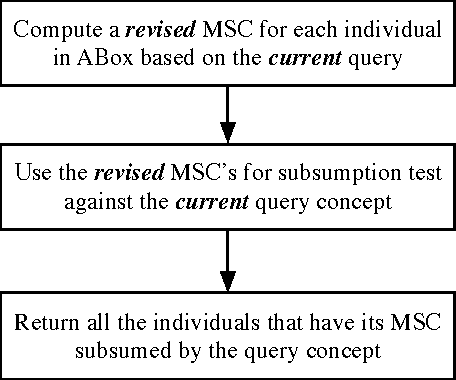

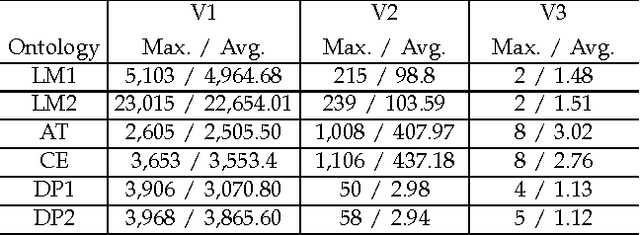
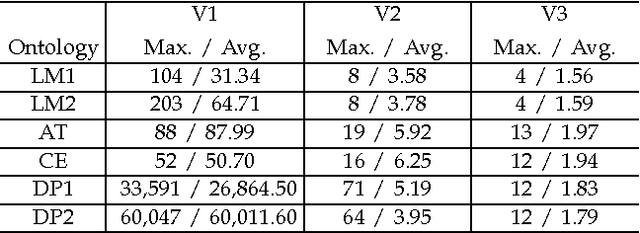
Abstract:Efficiently querying Description Logic (DL) ontologies is becoming a vital task in various data-intensive DL applications. Considered as a basic service for answering object queries over DL ontologies, instance checking can be realized by using the most specific concept (MSC) method, which converts instance checking into subsumption problems. This method, however, loses its simplicity and efficiency when applied to large and complex ontologies, as it tends to generate very large MSC's that could lead to intractable reasoning. In this paper, we propose a revision to this MSC method for DL SHI, allowing it to generate much simpler and smaller concepts that are specific-enough to answer a given query. With independence between computed MSC's, scalability for query answering can also be achieved by distributing and parallelizing the computations. An empirical evaluation shows the efficacy of our revised MSC method and the significant efficiency achieved when using it for answering object queries.
Extract ABox Modules for Efficient Ontology Querying
Jun 11, 2014


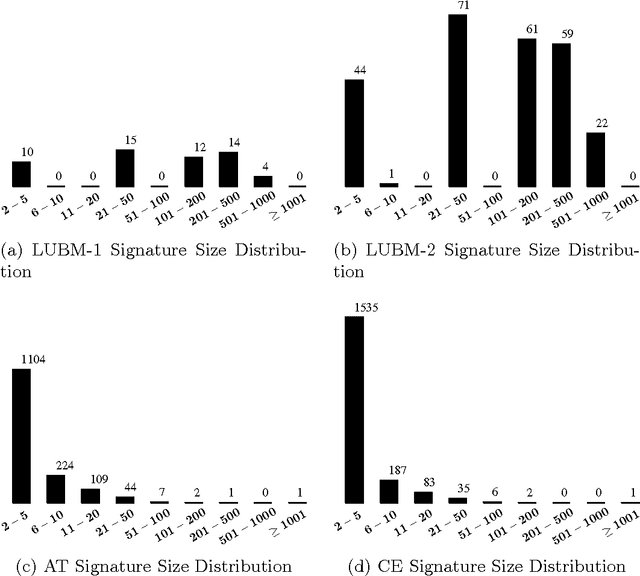
Abstract:The extraction of logically-independent fragments out of an ontology ABox can be useful for solving the tractability problem of querying ontologies with large ABoxes. In this paper, we propose a formal definition of an ABox module, such that it guarantees complete preservation of facts about a given set of individuals, and thus can be reasoned independently w.r.t. the ontology TBox. With ABox modules of this type, isolated or distributed (parallel) ABox reasoning becomes feasible, and more efficient data retrieval from ontology ABoxes can be attained. To compute such an ABox module, we present a theoretical approach and also an approximation for $\mathcal{SHIQ}$ ontologies. Evaluation of the module approximation on different types of ontologies shows that, on average, extracted ABox modules are significantly smaller than the entire ABox, and the time for ontology reasoning based on ABox modules can be improved significantly.
 Add to Chrome
Add to Chrome Add to Firefox
Add to Firefox Add to Edge
Add to Edge